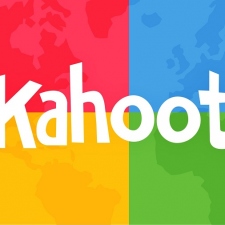Kahoot, the mobile quiz game, is set to go private thanks to an all-cash private equity deal worth a reported $2bn.
According to the Financial Times the deal, financed by Goldman Sachs and General Atlantic, is set to end Kahoot’s rough time on the stock market. Although Kahoot may not be the first thing that comes to mind when we think of mobile gaming, the title - which allows players to answer quiz questions by connecting via phone to a quiz, usually displayed via whiteboard in educational or business settings - has proven to be a major hit, especially during the Covid-19 Pandemic when universities and other education establishments were pushed online.
However, since September 2021 the group’s share price has halved, and General Atlantic originally acquired a 15% stake in the company in September after purchasing it from SB Northstar, a now-defunct hedge fund owned by frequent investor SoftBank. The deal to take Kahoot private raises questions about the broader mobile market and the M&A activity in adjacent areas. Kahoot themselves went on an acquisition spree a few years ago, acquiring mobile game developers such as Drops.
An endorsement or capitulation?
While Kahoot has obvious appeal and utility - as anyone who’s been in an educational setting in the last decade can attest - the educational nature of it may prove to be a burden. While other games, most famously the Jackbox series, use the concept of a single player via console or PC playing a game which other players connect to via their phones for easy party-games, Kahoot may be hamstrung by the relatively narrow quiz focus.
This can be seen in the drop in their share price post-Covid, something many mobile publishers and developers have been suffering from. There’s also been a glut of M&A activity, such as with Rovio - who have also previously teamed up with Kahoot - who were acquired by Sega earlier this year. By taking Kahoot private the objective seems to be to shield a more niche game and edtech group from the more turbulent effects of a less stable stock market due to macroeconomic circumstances.
There has been a significant boost in the stocks of many game related companies, however this is mainly on the larger side of things, such as with EA who saw their stock raise 4.6% after the news that the Activision Blizzard acquisition by Microsoft had defeated a legal challenge by the FTC.
Kahoot’s unique multiplayer features rarely used elsewhere in the industry are key to capitalising on the ubiquity of mobile devices. However, the deal to take the company private by Sachs and Atlantic seems to indicate a belief this sort of format will remain niche and limited to education establishments in the near future.





















